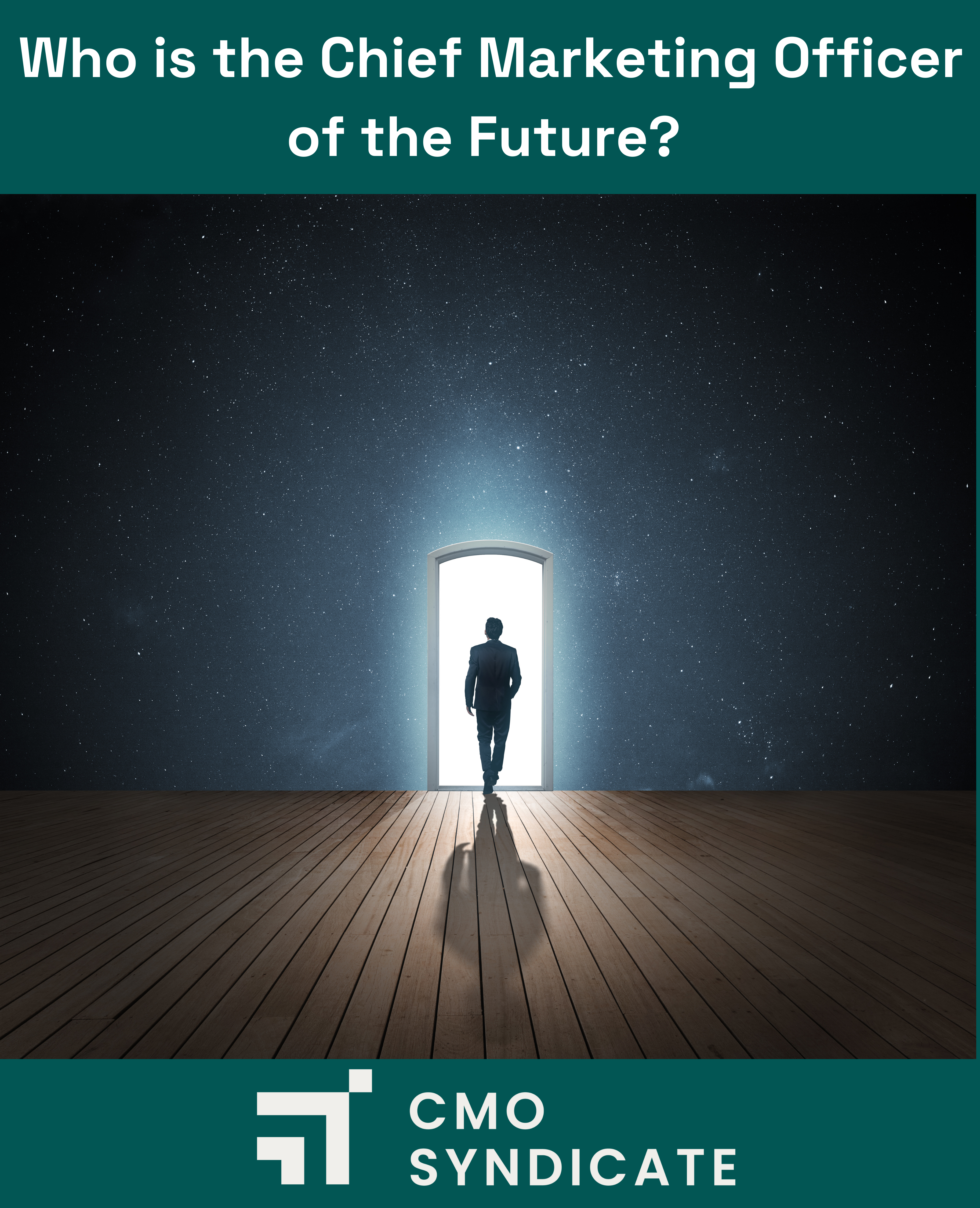Who is the CMO of the Future?
There has been (too much) news lately about the disappearing role of the CMO, but this oversimplified, “click-bait” - led narrative is just that – click-bait.
Not only is the Chief Marketing Officer (CMO) role not disappearing, it has never been more important or relevant. I would go as far as saying we are in the Golden Age of Marketing, with more technology, tools, channels, platforms, automation, analytics capabilities and AI at our side to grow our business than ever before. We CMOs are change leaders, growth architects, technologists, analysts, content creators, editors, strategists, and storytellers. We build brands, we drive growth, and ultimately, we are capital allocators, investing our company’s resources for the highest possible returns. And who else will navigate all of this other than the Modern, Full-Funnel, Performance and Story-telling oriented CMO? How about 2 or even 3 such CMOs?
You must be thinking, “hang on a sec, what?”. I promise, if you read on, it will all make sense.
The Traditional CMO
Twenty years ago, CMOs primarily managed brand positioning and advertising campaigns. Our responsibilities were largely confined to traditional media channels like TV and print, with a focus on crafting compelling messages to attract consumers. The role was often siloed within the marketing department, with limited involvement in broader business strategy. It was what you saw in Mad Men, with whisky swirling, cigar smoking, living large marketers – ok so maybe that was a little more than twenty years ago, but you get my point.
In the past two decades, the role of the CMO has undergone a profound transformation. Traditionally focused on branding, advertising, and market research, today's CMOs are now pivotal players in driving strategic growth, leveraging technology, and shaping organizational culture. This evolution reflects broader changes in the marketing landscape, driven by digital innovation and shifting consumer expectations.
The Digital CMO
The advent of digital technology has radically altered the marketing landscape. Social media, big data, and e-commerce have shifted the focus from one-way communication to interactive engagement with consumers. CMOs now oversee omnichannel strategies that integrate digital platforms with traditional media to create seamless customer experiences.
This shift has expanded the CMO's responsibilities beyond traditional marketing. We are now expected to be adept in digital strategy, performance marketing, data analytics, customer experience, and technology integration. This requires a deep understanding of consumer behavior across digital touchpoints and the ability to harness data-driven insights to inform strategic decisions.
The Strategic Partner
Today's CMOs are not just brand stewards; we are strategic business partners who contribute to overall organizational growth. We play a crucial role in identifying new market opportunities and driving innovation. By aligning marketing strategies with business objectives, we help shape the company's vision and mission.
The role also involves collaborating with other departments such as sales, finance, and product development to ensure cohesive strategies that drive revenue. This cross-functional collaboration underscores the CMO's influence on broader business outcomes.
The Chief Customer Officer
A significant aspect of the modern CMO's role is enhancing customer experience. This involves creating personalized interactions that foster brand loyalty and long-term relationships. CMOs must ensure that every touchpoint delivers value to customers, reinforcing the brand's promise.
We interact with customers, define their personas, design their experience, and to achieve this, leverage advanced analytics to gain insights into customer preferences and behaviors. This data-driven approach enables us to tailor our messaging and broader marketing efforts to meet evolving consumer needs effectively.
The Technology Partner
As technology continues to evolve, CMOs must stay ahead of trends such as artificial intelligence (AI), machine learning, and virtual reality. These technologies offer new ways to engage consumers and enhance marketing effectiveness. CMOs are tasked with integrating these innovations into their strategies while managing risks associated with rapid technological change. We are the change makers introducing tools for segmentation, user testing, automation, programmatic media, personalization, analytics and now AI, into every aspect of marketing.
The Future CMO
The expansion of responsibilities and expectations means CMOs are in fact "chief multipurpose officers,". In some organizations, we are the CDO, CGO, CCO, CRO ….the list goes on. From pricing, to product development, customer experience to analytics, the modern CMO has left those Mad Men folks in the dust. In other words, the traditional CMO role of advertising and branding is merely a fraction of what the modern CMO does. And given the rising expectations, the future CMO is going to have to be a cross between a super-hero and Optimus Prime – not an impossible task, but improbable if it is the role of a single individual. This should be your aha moment. It is the reason you are still reading. The moment you’ve been waiting for.
It is no longer the role of one CMO, but a tag team of 2 or 3, who work together to form one Super Optimus Prime of a CMO – the Future CMO.


Leave A Reply